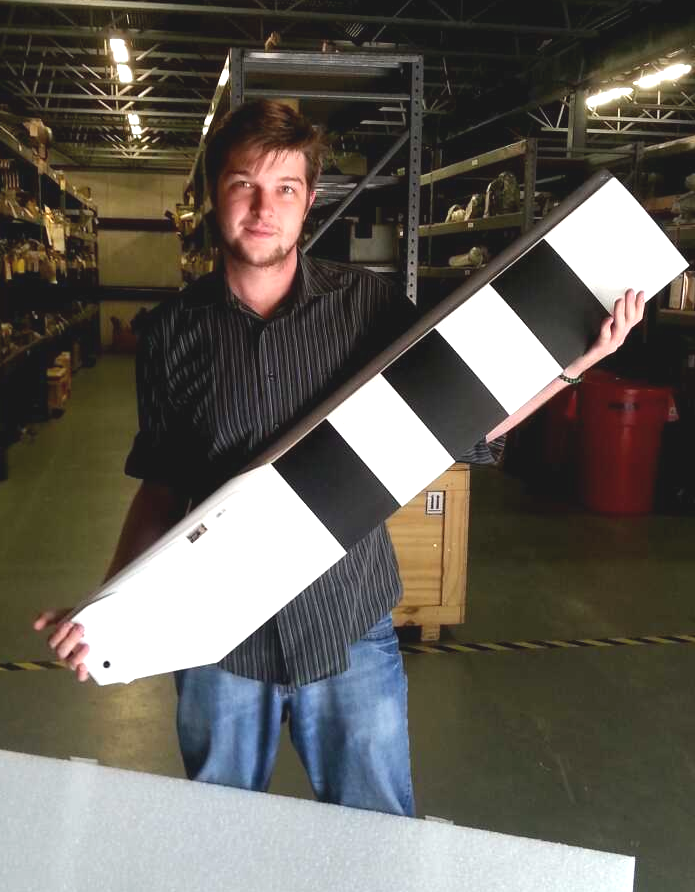We had the pleasure of interviewing our good friend Zoe Holmes. She serves as Quality Assurance Executive at Berjaya Air, Malaysia. Her primary focus is auditing internal and external aviation organizations and conducting Human Factor training course. She is not one to mess with and knows what she's doing.
Here is our conversation.
Enjoy.

1. What is your definition of Quality?
Response:
Quality refers to the engineering activities implemented in a quality system so that requirements for a product or service will be fulfilled. Quality also is the systematic measurement, comparison with a standard, monitoring of processes and an associated feedback loop that confers error prevention. Quality assurance includes management of the quality of products, services and inspection process.
2. What are your biggest frustrations when it comes to quality assurance?
Response:
There are many activities involve ensuring the aircraft, technical personnel and engineering compliance with company standards and Aviation authority Department of Civil Aviation Malaysia regulations. Personnel did not follow the procedure and do not take the job task seriously are the biggest frustrations when it comes to quality assurance.
o Is it difficult to adapt to these situations?
Response:
It is such a hassle when these situations happened and it is taking a lot of paperwork to submit to the aviation authority (Department Civil Aviation a.k.a DCA).
o How could your vendor’s and partner’s best service you during these problems?
Response:
Cooperation and assistance from the vendor and partners are the best service during these problems.
3. What’s one strategy you couldn't live without to keep your quality process running smoothly?
Response:
QA must understand the job functions of department or vendors before running the audit and prepare the checklist. So the audit checklist based on the job functions is one strategy to facilitate the audit process.
4. Now let’s talk about Human Factors:
o What is Human Factors?
Response:
Human factor is very broad field and when refer to the aviation maintenance, human factor is multidisciplinary effort to generate and compile information about human capabilities and limitations in the workplace. And apply that information to equipment, system, facilities, procedure, jobs, environment, training and personnel management for safety and efficiency as objectives.
o What are the key strategies in deploying Human Factors to your maintenance personnel?
Response:
The training section which is under Quality Assurance Department provide the human factor initial training to all certified aviation maintenance engineers (AME) and aviation maintenance technicians (AMT) who have had no previous training. The recurrent training or sometimes called “continuation” is taken after the initial training to refresh them every year.
o How do they respond to Human Factors?
Response:
Most of aviation maintenance personnel have positive feedback when they know the safety is their responsibility and they feel they are encouraged to speak up and take necessary actions to prevent unsafe conditions.
o What’s one thing you see the most problems with in the Human Factor field?
Response:
The most problems I see are complacency. Some engineers may specialize in a certain aspect of maintenance whereby the engineer may skip steps or fail to give attention to steps in a procedure due to the repetitive maintenance task. There is a list of the most common sources of problem or errors in aviation maintenance. This list is known as “The Dirty Dozen” and it has been widely acknowledged in the aviation maintenance community. They are lack of communication, complacency, lack of knowledge, distraction, lack of team work, fatigue, lack of resource, pressure, lack of assertiveness, stress, lack of awareness and norms.
o Is there a way to mitigate this problem?
Response:
We can’t avoid the error but we can minimize the error by evaluating, investigating, observing the aviation organizations with questionnaires or opinionnaires so that the organizations can identify whether they are working in ergonomic society and safety culture.
5. If you could give one recommendation to other airline professionals in terms of Quality and Human Factors what would that be?
Response:
Since the human factor training is required by FAA and EASA regulations in aviation organization, I recommend that airline professionals should establish and implement the quality and internal human factor program by understanding the human factor concept, principle and methods as human error prevention to avoid accident and incidents.
Did you enjoy this Q&A Respond to this email, we would like to hear from you.




















